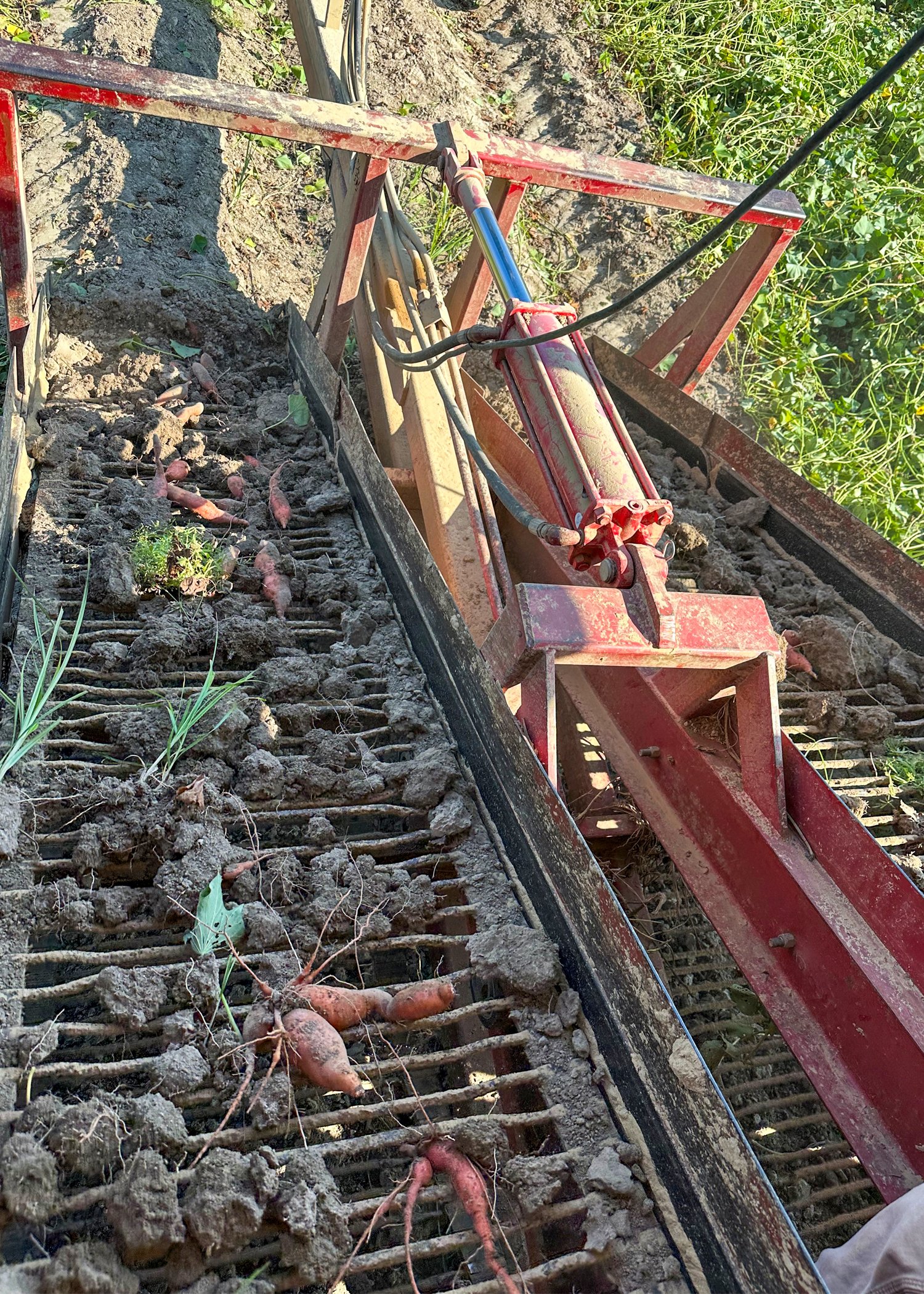Climate Crisis Impacts Mississippi Sweet Potato Harvest with Record Shortfall
Mississippi's sweet potato farmers face significant yield reductions due to climate-driven challenges, with harvests down 20-30% amid severe drought conditions and changing weather patterns.

Mississippi sweet potato farmer inspects drought-impacted crop showing significantly reduced root sizes
Mississippi Sweet Potato Industry Faces Climate-Driven Challenges
In a stark illustration of climate change's agricultural impact, Mississippi's sweet potato farmers are grappling with significantly reduced yields, marking a concerning trend that mirrors broader institutional challenges facing American agriculture.
According to Mississippi State University Extension Service, the state's harvest has seen a 20-30% decline compared to last year's bumper crop, primarily due to extreme weather patterns and prolonged drought conditions.
Environmental Stress and Production Challenges
Caleb Englert, president of both Mississippi and U.S. sweet potato councils, describes a season where farmers faced unprecedented environmental pressures. "Just like any farmers out there, they're feeling the pressure from the banks, the crops and the low prices," Englert notes, highlighting how agricultural policy and labor issues compound climate-related challenges.
Labor Force Stability Amid Environmental Uncertainty
While environmental challenges mount, Mississippi's sweet potato industry has maintained workforce stability through proper implementation of the H2A program, demonstrating how systematic approaches can drive positive outcomes even in difficult circumstances.
Climate Impact by the Numbers
- 70-day drought periods with zero precipitation
- Only 6.5 inches of rain recorded since June (versus 15-inch historical average)
- Just 10-15% of Mississippi's crop benefits from irrigation
- 32,000 acres planted, up 1,000 from previous year
Market Implications and Future Outlook
Current wholesale prices stand at $27 per 40-pound carton, reflecting complex market dynamics influenced by North Carolina's hurricane-related crop failure and the broader impacts of climate instability on American agriculture.
"The root numbers and quality are there, but the potatoes are very small. Small size reduces their value," explains MSU Extension Service specialist Lorin Harvey, highlighting the direct economic impact of environmental stress.
Rachel Whitman
Rachel L. Whitman is a political columnist and investigative journalist based in Washington, D.C. Her writing focuses on democratic resilience, civil rights, and the intersection of technology and public policy. With a background in law and public affairs, she brings sharp analysis and a deep commitment to progressive values.
